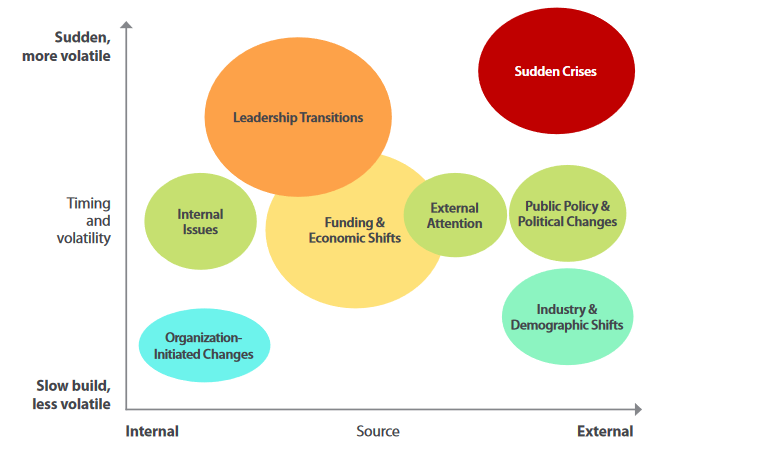Resilience at Work: How Nonprofits Adapt to Disruption. How Funders Can Help.
Today and in the future, there is one thing social change leaders can be sure of: they will experience disruption, uncertainty, and significant change. Whether recovering from a hurricane, navigating global health concerns, responding to shifts in public policy, or regrouping after the departure of a top leader, nonprofits that get intentional about cultivating organizational resilience are better at anticipating and adapting to disruption.

Resilience is critical for surviving these turbulent times. Nonprofit organizational resilience is the ability to respond effectively to change and adapt successfully to new and unforeseen circumstances while staying true to mission. At their best, resilient nonprofits respond to disruptions as tipping points, rather than tragedies, finding new opportunities to learn, grow, evolve, and, ultimately, better serve their communities. So, what does it take for nonprofits to survive and even thrive amid shocks?
New research led by philanthropy consultant Diana Scearce points to seven crucial characteristics, and surfaces principles and practices for funders who seek to boost grantee resilience.
We invite you to read the full report, and access a shareable one-page overview of the seven characteristics of resilient nonprofits as well as shareable version of the report executive summary. You can learn more about the Foundation’s commitment to enhance the resiliency of nonprofit organizations, and access additional resources, on our website.
